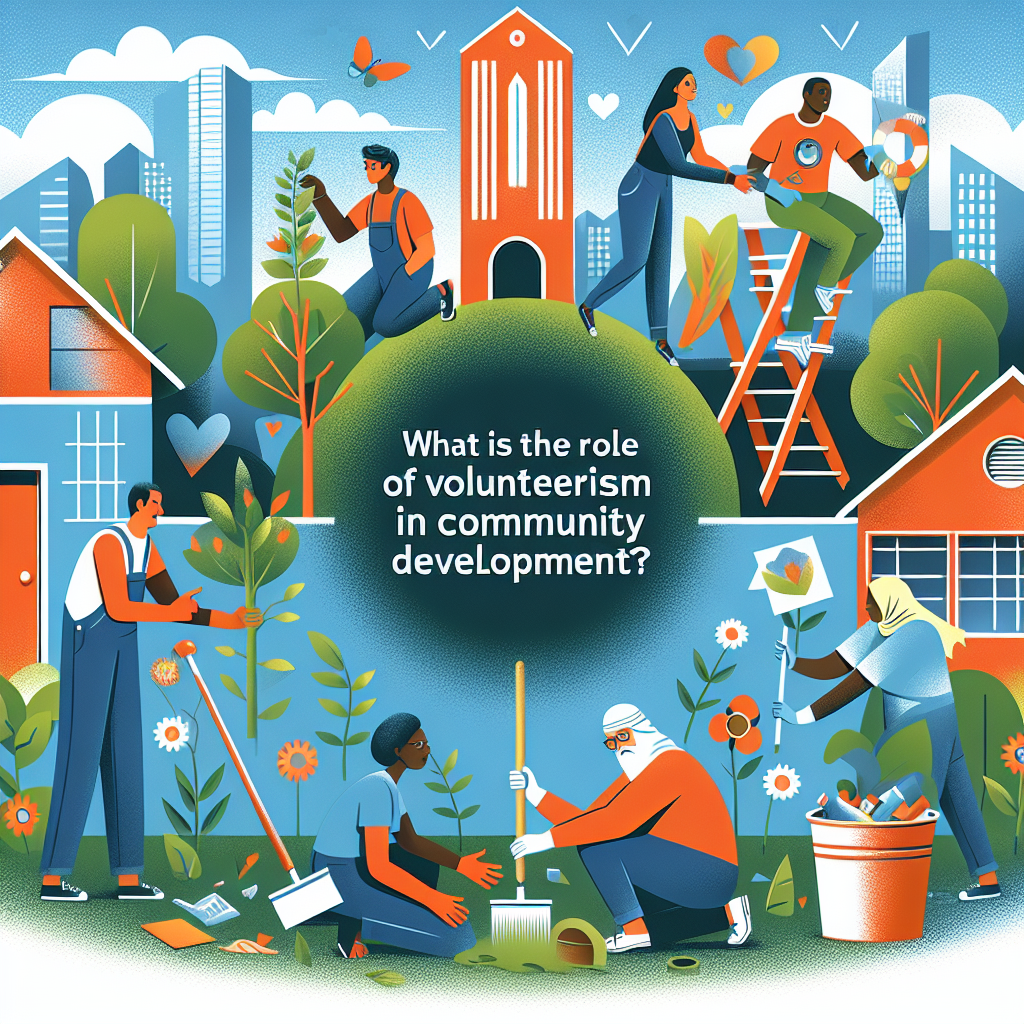Volunteerism plays a crucial role in community development by bringing people together to work towards a common goal of improving their neighborhoods, towns, and cities. Volunteers dedicate their time, skills, and resources to address various issues such as poverty, education, healthcare, social justice, and environmental sustainability. Their efforts contribute to building stronger communities, promoting social cohesion, and helping those in need. In this article, we will explore the role of volunteerism in community development and discuss how volunteering can make a positive impact on society.
Volunteerism is defined as the practice of offering one’s time and resources for the benefit of others without expecting any financial compensation in return. Volunteers are motivated by a desire to make a difference in their communities and help those who are less fortunate. They come from diverse backgrounds and bring a wide range of skills and expertise to their volunteer work. Some volunteers may be students looking to gain experience, professionals wanting to give back to their communities, or retirees looking to stay active and engaged.
One of the key roles of volunteerism in community development is to address social issues that affect the well-being of individuals and families. Volunteers can provide support to vulnerable populations, such as the elderly, children, individuals with disabilities, and low-income families, who may not have access to essential services or resources. For example, volunteers can serve meals at a homeless shelter, mentor at-risk youth, provide transportation to elderly individuals, or organize community clean-up events.
Volunteers also play a crucial role in promoting social cohesion and building stronger communities. By bringing people together to work towards a common goal, volunteering fosters a sense of solidarity and mutual respect among community members. Volunteers form relationships with one another and with those they serve, which can lead to greater understanding and empathy. By working together, volunteers can create a more inclusive and welcoming community where everyone feels valued and supported.
Furthermore, volunteerism contributes to the overall development of a community by creating opportunities for learning, personal growth, and skill-building. Volunteers often gain new skills and experiences through their service, such as leadership, communication, problem-solving, and teamwork. These skills can be valuable in their personal and professional lives and can help them become more engaged and active citizens. Volunteering also provides opportunities for individuals to explore their interests and passions, develop a sense of purpose, and make a positive impact on the world around them.
In addition to its social benefits, volunteerism also has economic benefits for communities. By mobilizing volunteers to address pressing social issues, communities can save money on costly social services and programs. Volunteers can provide valuable support to non-profit organizations, schools, hospitals, and government agencies, helping them to operate more efficiently and effectively. Furthermore, volunteerism can attract resources and funding to a community by demonstrating the community’s commitment to addressing local needs. Businesses, foundations, and government agencies are more likely to invest in communities that have strong volunteer programs and a track record of community engagement.
Overall, volunteerism plays a vital role in community development by bringing people together to address social issues, promote social cohesion, and build stronger communities. By volunteering their time and resources, individuals can make a positive impact on society and contribute to a more just, equitable, and sustainable world.
FAQs
Q: How can I get involved in volunteer work in my community?
A: There are many ways to get involved in volunteer work in your community. You can start by contacting local non-profit organizations, schools, hospitals, and government agencies to inquire about volunteer opportunities. You can also search for volunteer opportunities online through websites such as VolunteerMatch, Idealist, and All for Good. Additionally, you can join community groups and clubs that are dedicated to volunteering, such as Rotary clubs, Lions clubs, and Kiwanis clubs.
Q: What are the benefits of volunteering?
A: Volunteering has many benefits, both for individuals and for communities. Some of the benefits of volunteering include gaining new skills and experiences, making a positive impact on society, building relationships and social connections, improving mental and physical health, and enhancing one’s sense of purpose and fulfillment.
Q: How much time do I need to commit to volunteer work?
A: The amount of time you need to commit to volunteer work depends on your availability and the requirements of the volunteer position. Some volunteer opportunities may only require a few hours of your time each week, while others may require a more significant time commitment. It’s important to communicate your availability and preferences with the volunteer organization so they can match you with a volunteer position that fits your schedule.
